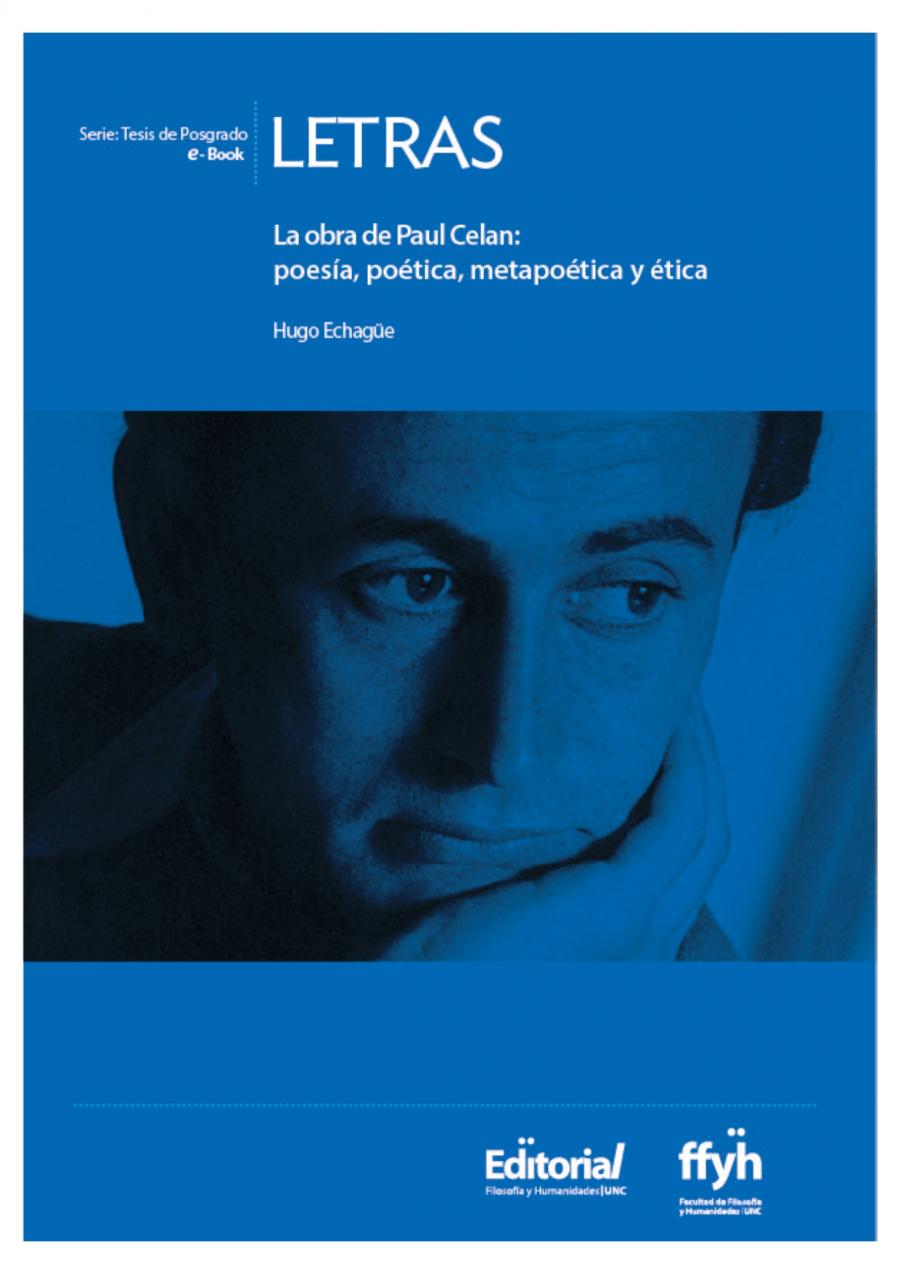The work of Paul Celan: poetry, poetics, metapoetics, and ethics
Keywords:
literature, literary studies, Celan Paul (1920-1970), memory, poetry, ethicsSynopsis
This thesis proposes a study of the published poetic works of Paul Celan (1920-1970), with references to his theoretical texts, the Bremen Speech (1958) and The Meridian (1961). The controversy surrounding the meaning of this author's work, which points to the Holocaust perpetrated by the Nazis against Jews, as well as against homosexuals, Gypsies, and Germans or citizens of other countries whose ideology opposed the dictatorial and murderous government that ruled Germany between 1933 and 1945. The victims of the extermination camps number in the millions. Paul Celan dedicated his work to confronting this crime, taking the voice of the victims as his witness. This led him into constant confrontation with critics, who wanted to see him only as a precious poet, an avant-gardist alien to history—even from the opposition to the regime, he was attacked from that position. They failed to see that Celan's supposed hermeticism responded to a greater design: to rectify the German poetic language, subjecting it to a revision as indicated by the author we follow in our work, the critical philologist Jean Bollack (1923-2012). Celan subverted language from within, especially in relation to certain German poets who were used to justify Nazi ideology, such as Hölderlin and Rilke, which led him to rewrite them, to counter them with his own words. Thus, Celan's poetry constructs a world of words, taking up German war and hymn poetry to turn it against itself, to make it say what it should have said in order not to collaborate, even unwittingly, with the crimes; to make it say the nothingness to which it has been reduced by the atrocities in which it was implicated.
This mechanism, with its dual operation—one autonomous, in which words from history, including poetry, are reshaped in often enigmatic ways, and a second, heteronomous moment, in which the work, thus rewritten, returns to history—is what we identify as the key to his writing. In this way, Paul Celan's poetry has confronted crime, not as a mere complaint or denunciation, but as the remaking of a language that had been perverted and destroyed through the years of lies and death that lasted throughout the regime. The implementation of this approach, in our analysis of model poems from Paul Celan's work, shows this intention to renew language, and with it life in its entirety, thus intertwining poetry with poetics, metapoetics, and ethics, since his work reflects on itself and its own making and thus becomes metapoetic, just as its aesthetics are identified with ethics. This perspective, which destroys the presumption of an indecipherable poet, proposes to put these keys into action to show the achievement of his enormous poetic work, which seeks to establish a memory that is more than a return to trauma, but rather installs a memory that does not cease, so that it is not forgotten, so that a dignified life is still possible.

Downloads
Published
Categories
License

This work is licensed under a Creative Commons Attribution-NonCommercial-ShareAlike 4.0 International License.


